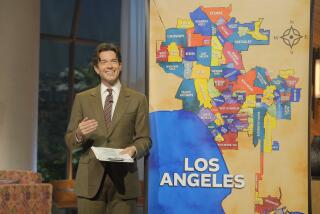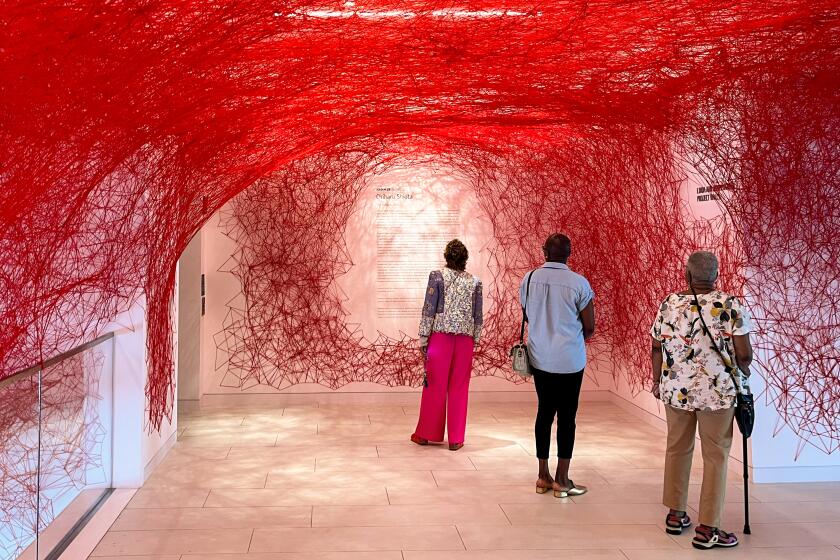Comic wit of a century
Paying tribute to Bob Hope in just a few short words is like trying to give Mt. Rushmore a close shave.
In an industry that demands not only ever-newer faces, but also that the older faces be made to look as if they were new all over again, Hope boasted a career that had a shelf life of darn near an entire century.
The year that he was born (following a nine-month tryout in the womb), Roosevelt was in the White House. Theodore Roosevelt, that is; the 26th of our presidents. Hope went on to entertain and become the confidant and golf partner of succeeding U.S. presidents clear through to our 43rd. In a life that spanned the better and all of the worst parts of the last hundred years -- from TR to FDR, from Henry to Gerald Ford, from Bush to Bush, Louis to Neil Armstrong, Bojangles to Jackie Robinson, Karl Marx to Groucho, from vaudeville to video -- America’s comic laureate never met a medium he couldn’t, and didn’t eventually, master.
With his first radio show in May of 1937, Hope entered the national consciousness he was not to leave for the next 60 years. Either radio was invented for him or he was invented for radio, for it was through that medium that, by generating incredible bursts of brio, Hope made the family Philco crackle with his machine-gun delivery, his style very much like another ex-hoofer, Jimmy Cagney. Only without the snarl.
(Philco, for those of you who might quite possibly have been born yesterday, was the name of a make of radio in the days when, more than a mere appliance, radios could be surfed for their Web-like usefulness; a wooden member of every household, they were, for the family that owned one [one was enough in those days -- one of anything], its theater, its newsroom, encyclopedia, vaudeville house, jukebox. Radio was a warm, friendly, benevolent friend -- despite the commercials it offered, wherein doctors instructed a simpler, sweeter, goofier American on how much our digestive process could be aided by the smoking of cigarettes.)
Although his radio shows are somewhat inaccessible these days, it’s altogether possible that somewhere, way, way out there, high up in the ether, perhaps a member of the Martian Marine Corps is laughing his heads off at Hope’s cracks about Bing’s protruding ears or Jane Russell’s equally outstanding protrusions.
But see Bob on the big screen. See him on the little one. See Bob run. See him clown and quip, see him lech and leer. See how Bob always gave his all -- which for anyone else would have been all-and-a-half.
Walt Disney had to draw animation. Bob Hope embodied it.
In 1950, when he agreed to stick his head inside the then-new medium of television, he did so with his characteristic confidence and sense of adventure, knowing all that he had done before was prologue and that the tube would prove to be his ideal, ultimate destination; knowing that when vaudeville died, television was the box they put it in.
And so, from his debut in 1950 until his final special in 1996, this Peck’s Bad Boy in a Windsor knot reigned supreme in a medium at once whimsical and harsh, where some less-fortunate performers’ shows have been known to be canceled before the very first commercial.
God only knows how much comedy material Hope consumed, this man for so many seasons -- how many ad-libs and trigger-fast comebacks he read off an endless sea of cue cards that he was the first to call “idiot boards.”
Faceless we might have been, we who toiled endlessly to mine Hope’s one-liners, but we were always publicly appreciated by him -- as we were privately delighted by him.
Those who knew him knew that he never needed a script in his hands to be humorous. His mind was as swift as his delivery; his offstage, off-the-cuff remarks often far more spontaneous and wittier than the sometimes too easy, by-the-numbers jokes we came up with for him.
Here’s a sample, though, of some of the best of our work, one of the better jokes from a Bob Hope monologue. The context will reveal its vintage.
“I see where Gen. Eisenhower has decided to run for president,” Hope informs us.
Then adds:
“Just shows you what some guys won’t do to get out of the Army.”
Two simple sentences, the joke is an example of democracy in action, Hope demonstrating that in America even an immigrant boy can grow up to kid the president. And use a bank shot off a five-star supreme commander in the process.
For several decades and for far more wars than anyone ever wanted, one of Bob’s sure-fire one-liners used to be:
“I just got back from Washington. I like to go there every once in a while just to visit my money.”
In these times, when numbers seem to have replaced words in the matter of which is more important to us, there has been a good deal of speculation as to just how many millions Bob Hope managed to stash away throughout his mortal gig. The exact number is strictly between his estate and the IRS. (His gift for business -- not stage business but rather business business -- was not in any way less brilliant. His long-ago agent, Jimmy Saphier, once told me that Bob had the smarts to be able to run General Motors.)
Let us rather speculate, and appreciate, how many millions -- those millions we are sure of -- whose lives were enriched watching him as he displayed his gift for acting the fool, the fool we were always certain was the person sitting right next to us.
And for being cheeky, for trying to turn on an achingly pretty woman and always getting turned down for his efforts, instead of suffering that fate ourselves.
And, lastly, for visiting the countless sons and daughters in faraway places -- all the husbands and fathers and sisters that we could not -- to say how grateful we at home were for the sacrifices they were making on our behalf.
Asked to recall a favorite anecdote of the days I spent working with Hope, my standard reply is that it was, in fact, one, long anecdote that lasted four years.
Pressed for something that won’t take quite that long to retell, I repeat a telegram that he sent ages ago to a former secretary of his -- a young woman who had just married. The message, which Bob had delivered to the bride on her first night in her honeymoon suite, consisted of two words.
The two words were: “Act surprised.”
Brevity, indeed, is the soul of wit.
And so, indeed, was Bob Hope.
*
Larry Gelbart wrote for Bob Hope from 1948 to 1952. He went on to write for Broadway and films.
More to Read
The biggest entertainment stories
Get our big stories about Hollywood, film, television, music, arts, culture and more right in your inbox as soon as they publish.
You may occasionally receive promotional content from the Los Angeles Times.






